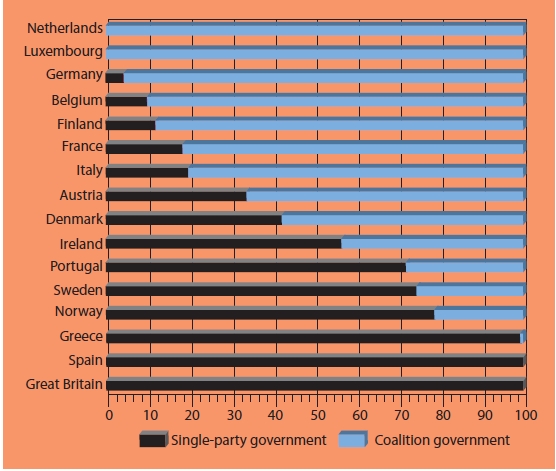Are coalition governments better?
Located in: Other
Status: 🌱 Seedling
The idea of a coalition government is quite foreign to a north american. There are 4 major parties in Canada: the Liberals, the Conservatives, the NDP, and the Bloc Québécois.
But that's not the case in Europe. European coalition governments are common, the Netherlands for example has had a coalition government from 1945-1999:
 [1]
[1]
Advantages
- Coalition governments represent a broader spectrum of the population so they can be considered more democractic
- When it comes to voting, countries with the potential for a coalition government, give votes the opportunity to be more clear on what they want. In North America, the parties cover a wide spectrum and competing perspectives.
- It's also easier for parties to split based on ideological differences because it's more likely you'll still have a chance of political power.
- Because coalition governments are a blend of parties the policies will remain within a certain range. This means the bureaucrats and ministers will continue in their roles and build experience. In comparison, in non-coalition countries, when the majority party changes it results in policy-reversals and changes to less experienced leaders.
Disadvantages
- Coalition governments can be considered less democractic as smaller parties can barter for more support than they have achieved from the election. The TV series Borgen is based around this idea, where a leader of a minor party is made prime minister.
- Coalitions can take a short-term view as they won't be elected in this form again.
- Because the decisions made by a coalition government involve significant backroom negotiation, there is little transparency in the decisions and who is responsible for certain decisions.
Müller and Strøm, 2000 ↩︎